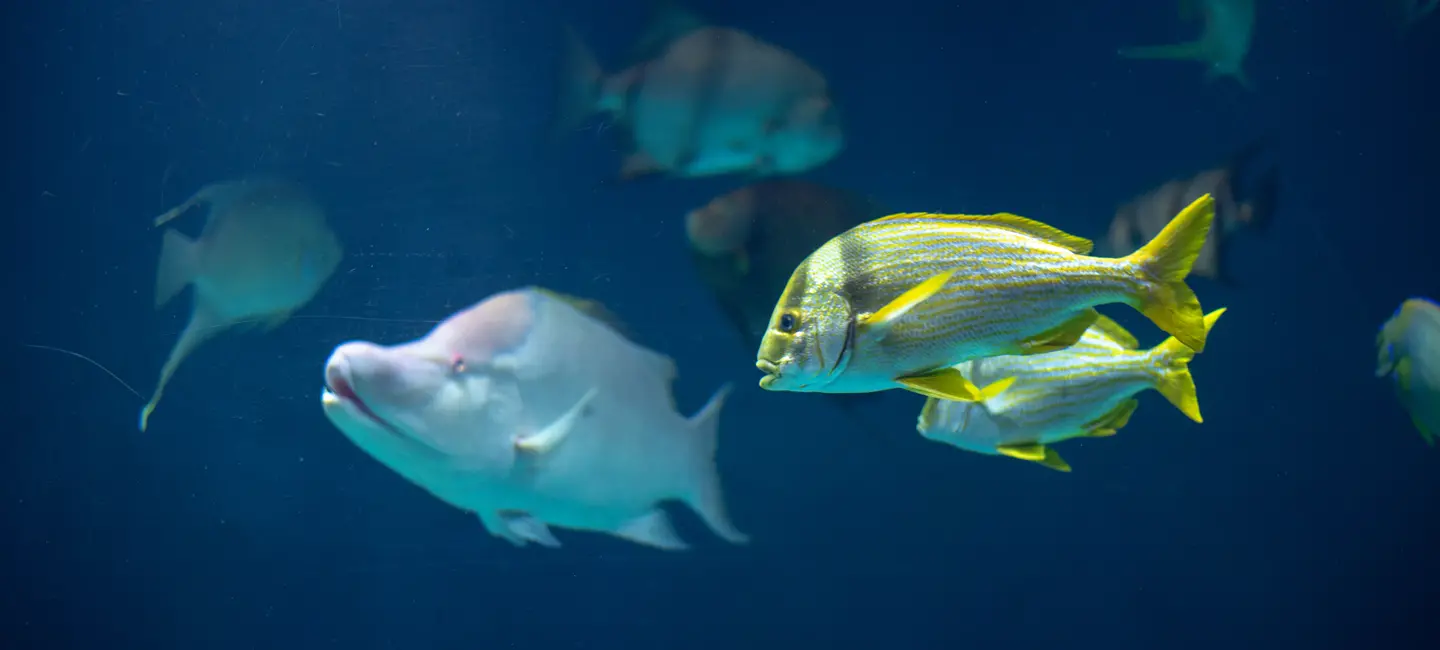
Ciguatoxins are a group of poison that can accumulate in certain fish. Ciguatoxins are not used as a medicine.
Ciguatoxins cause a type of food poisoning called ciguatera. People can get ciguatera by eating normally safe, bottom-feeding, coral reef fish that have collected the poison from the food chain. This poisoning tends to occur near areas of disturbed reef, including severe weather and waterfront construction. Many different types of fish can be contaminated. The most common are large predatory reef fish, such as moray eels, snappers, groupers, barracuda, jacks, surgeons, Spanish mackerel, and humphead wrasse. There are no good “rules of thumb” for detecting tainted fish. They look, taste, and smell normal. The best way to avoid eating contaminated fish is to avoid eating the organs or head of large fish that came from an area around a reef.
Is It Effective?
Natural Medicines rates effectiveness based on scientific evidence according to the following scale: Effective, Likely Effective, Possibly Effective, Possibly Ineffective, Likely Ineffective, Ineffective, and Insufficient Evidence to Rate.
- Ciguatoxins do not have any medicinal uses.
Is it Safe?
Ciguatoxins interferes with the normal function of nerve cells.
Ciguatoxins are UNSAFE when taken by mouth. One bite of fish tainted with ciguatoxins can be enough to cause symptoms. The most common symptoms include stomach cramps, nausea, vomiting, and diarrhea. Other symptoms include itching; numbness of lips, tongue, and throat; blurred vision; low blood pressure; slowed heart rate; alternating hot and cold sensations; and coma. In severe cases, shock, muscular paralysis, and death can occur.
Special Precautions & Warnings:
Pregnancy and breast-feeding: Ciguatoxins are UNSAFE for anyone, including pregnant and breast-feeding women. One pregnant woman who was poisoned suffered a miscarriage. Breast-feeding women should be especially careful to avoid ciguatoxins because they pass into breast milk and can affect the nursing infant.
It is not known if Ciguatoxins interacts with any medicines. Before taking Ciguatoxins, talk with your healthcare professional if you take any medications.
There are no known interactions with herbs and supplements.
Alcohol: Ciguatoxins can cause a type of food poisoning called ciguatera. Symptoms of ciguatera sometimes return in recently affected people after they have had alcohol. Some doctors recommend that patients avoid alcohol for several months after being diagnosed with ciguatera.
Caffeine-containing foods and drinks (coffee, tea, chocolate): Ciguatoxins can cause a type of food poisoning called ciguatera. Symptoms of ciguatera sometimes return in recently affected people after they have had caffeine. Some doctors recommend that patients avoid coffee, tea, and chocolate for several months after being diagnosed with ciguatera.
Fish: Ciguatoxins can cause a type of food poisoning called ciguatera. Symptoms of ciguatera sometimes return in recently affected people after they have had other types of fish, even if does not contain the toxin. Some doctors recommend that patients avoid fish for several months after being diagnosed with ciguatera.
Meat: Ciguatoxins can cause a type of food poisoning called ciguatera. Symptoms of ciguatera sometimes return in recently affected people after they have had meat, especially chicken and pork.
Nuts: Ciguatoxins can cause a type of food poisoning called ciguatera. Symptoms of ciguatera sometimes return in recently affected people after they have had nuts. Some doctors recommend that patients avoid nuts for several months after being diagnosed with ciguatera.
The appropriate dose of ciguatoxins depends on several factors such as the user's age, health, and several other conditions. At this time there is not enough scientific information to determine an appropriate range of doses for ciguatoxins. Keep in mind that natural products are not always necessarily safe and dosages can be important. Be sure to follow relevant directions on product labels and consult your pharmacist or physician or other healthcare professional before using.
C-CTX, C-CTX-1, C-CTX-2, Ciguatera Toxins, Ciguatoxin 1, Ciguatoxin-1B, Ciguatoxin 2, Ciguatoxin 3, Ciguatoxin 4B, CTX, CTX-1, CTX-2, CTX-3, CTX-4, CTX1B, CTX2A1, CTX2A2, CTX2B2, CTX3C, CTX4A, CTX4B, Gambiertoxin, GTX-4B, Gt 4b, I-CTX, P-CTX, P-CTX-1, P-CTX-1B, P-CTX-2, P-CTX-3, Pacific Ciguatoxin 1, Pacific ciguatoxin-3C, 2,3-dihydroxyCTX3C, 52-epi-54-deoxyCTX, 54-deoxyCTX.
Natural Medicines disclaims any responsibility related to medical consequences of using any medical product. Effort is made to ensure that the information contained in this monograph is accurate at the time it was published. Consumers and medical professionals who consult this monograph are cautioned that any medical or product related decision is the sole responsibility of the consumer and/or the health care professional. A legal License Agreement sets limitations on downloading, storing, or printing content from this Database. Except for any possible exceptions written into your License Agreement, no reproduction of this monograph or any content from this Database is permitted without written permission from the publisher. Unlawful to download, store, or distribute content from this site.
For the latest comprehensive data on this and every other natural medicine, health professionals should consult the Professional Version of the Natural Medicines. It is fully referenced and updated daily.
© Copyright 1995-2021. Therapeutic Research Faculty, publishers of Natural Medicines, Prescriber's Letter, and Pharmacist's Letter. All rights reserved.
